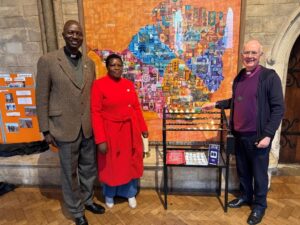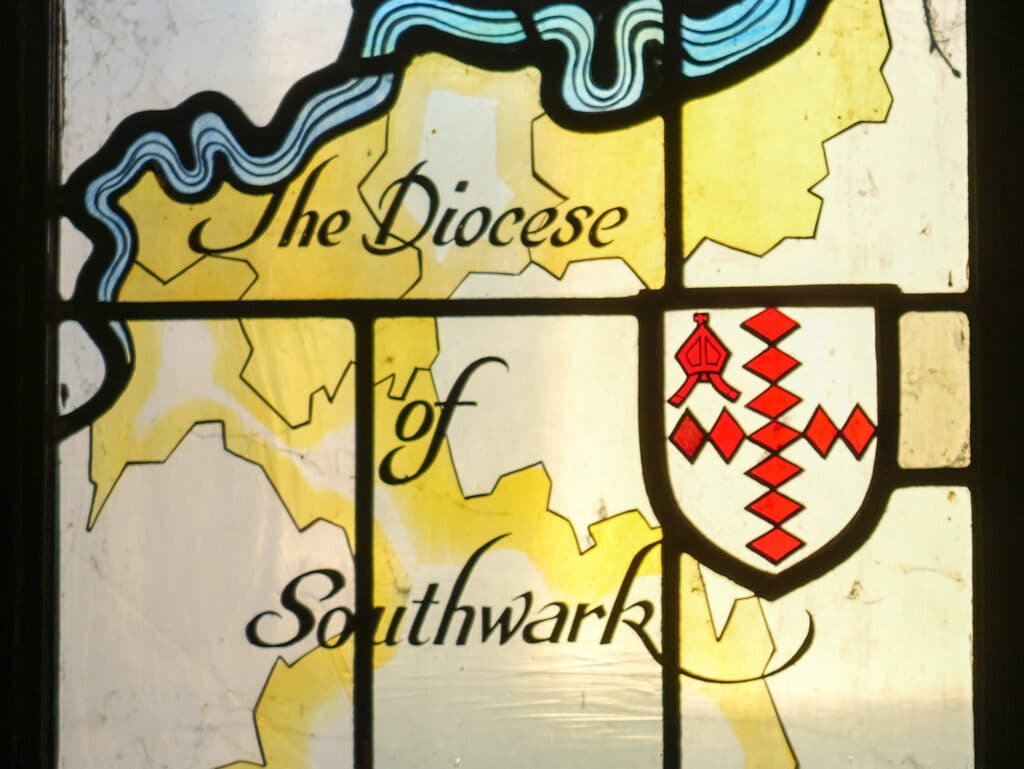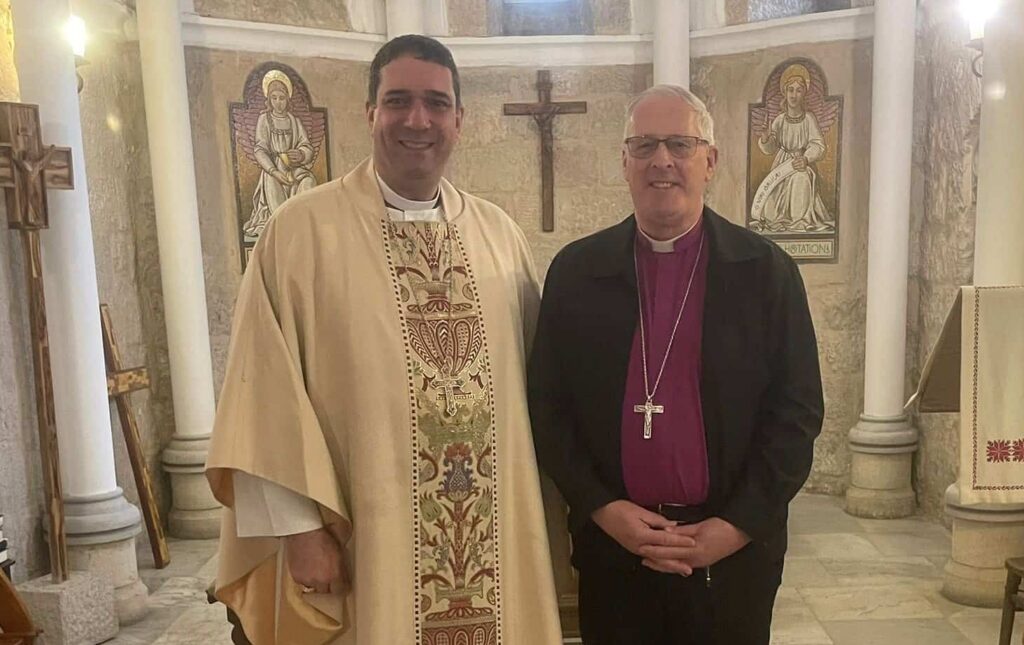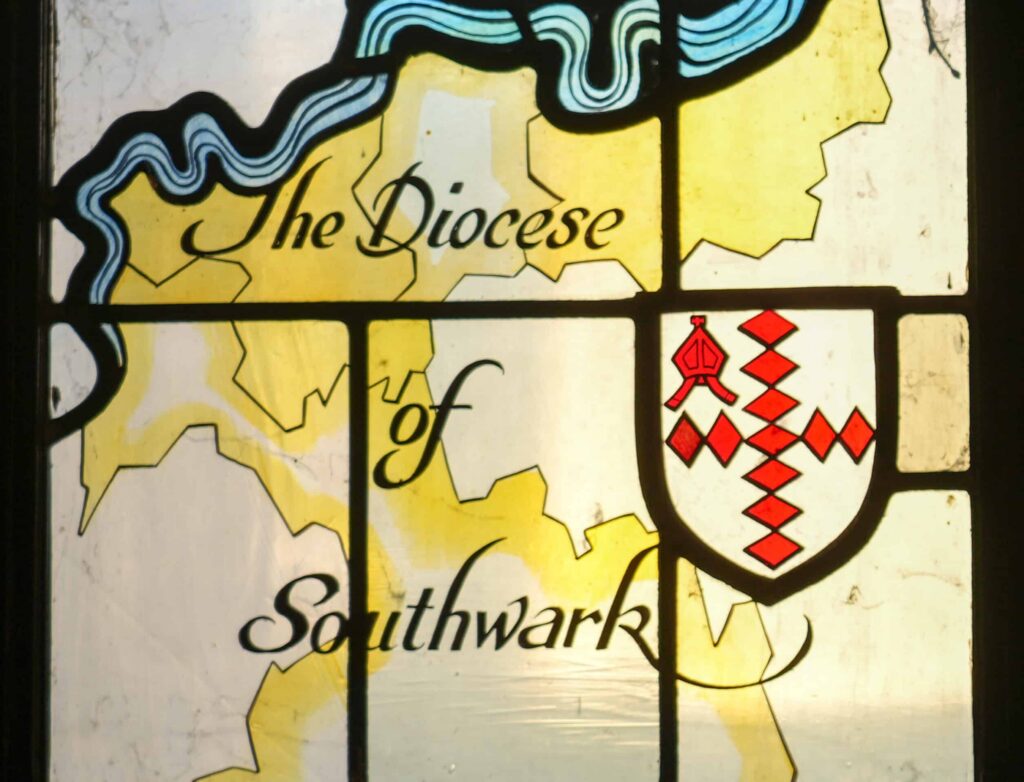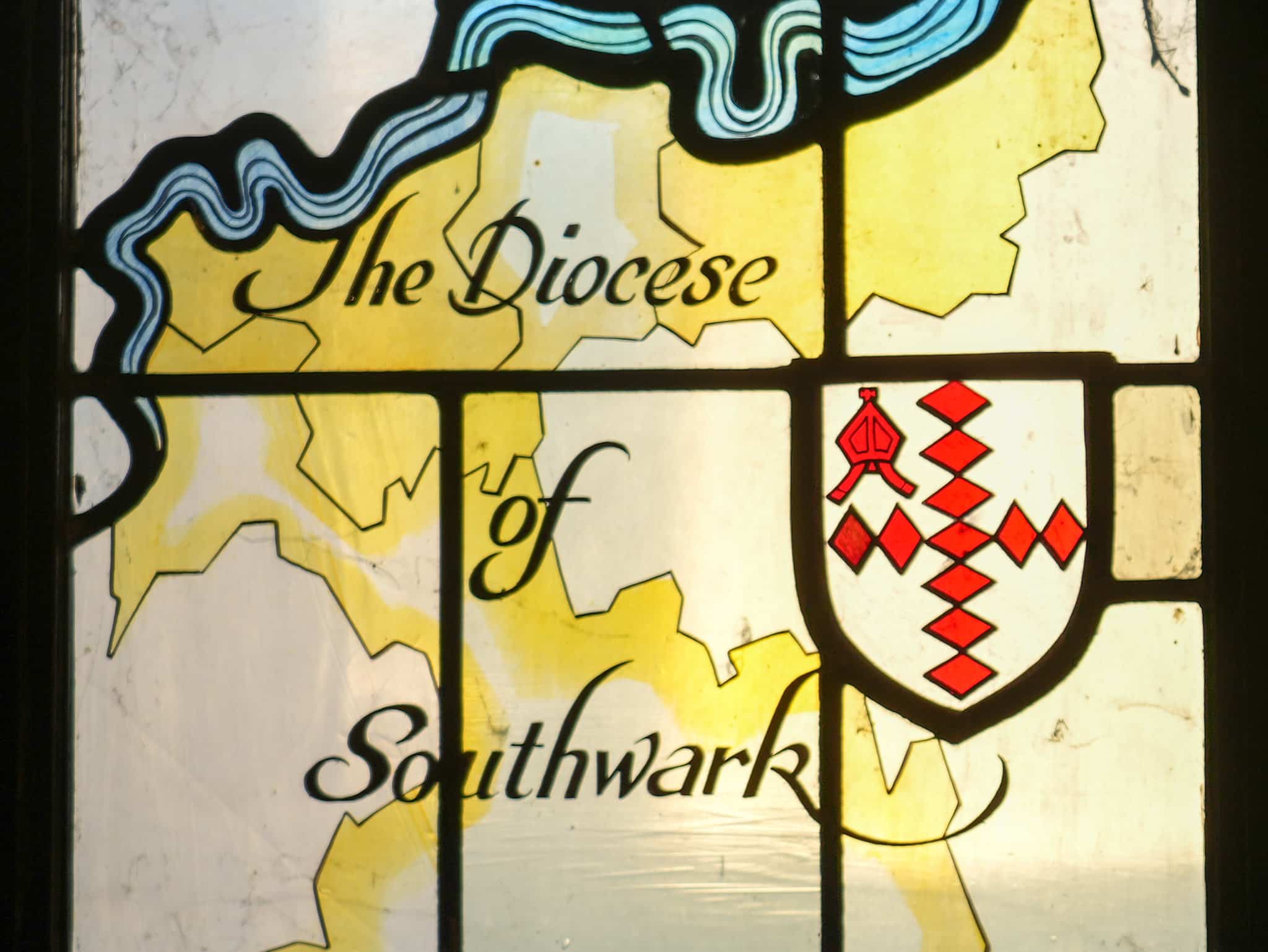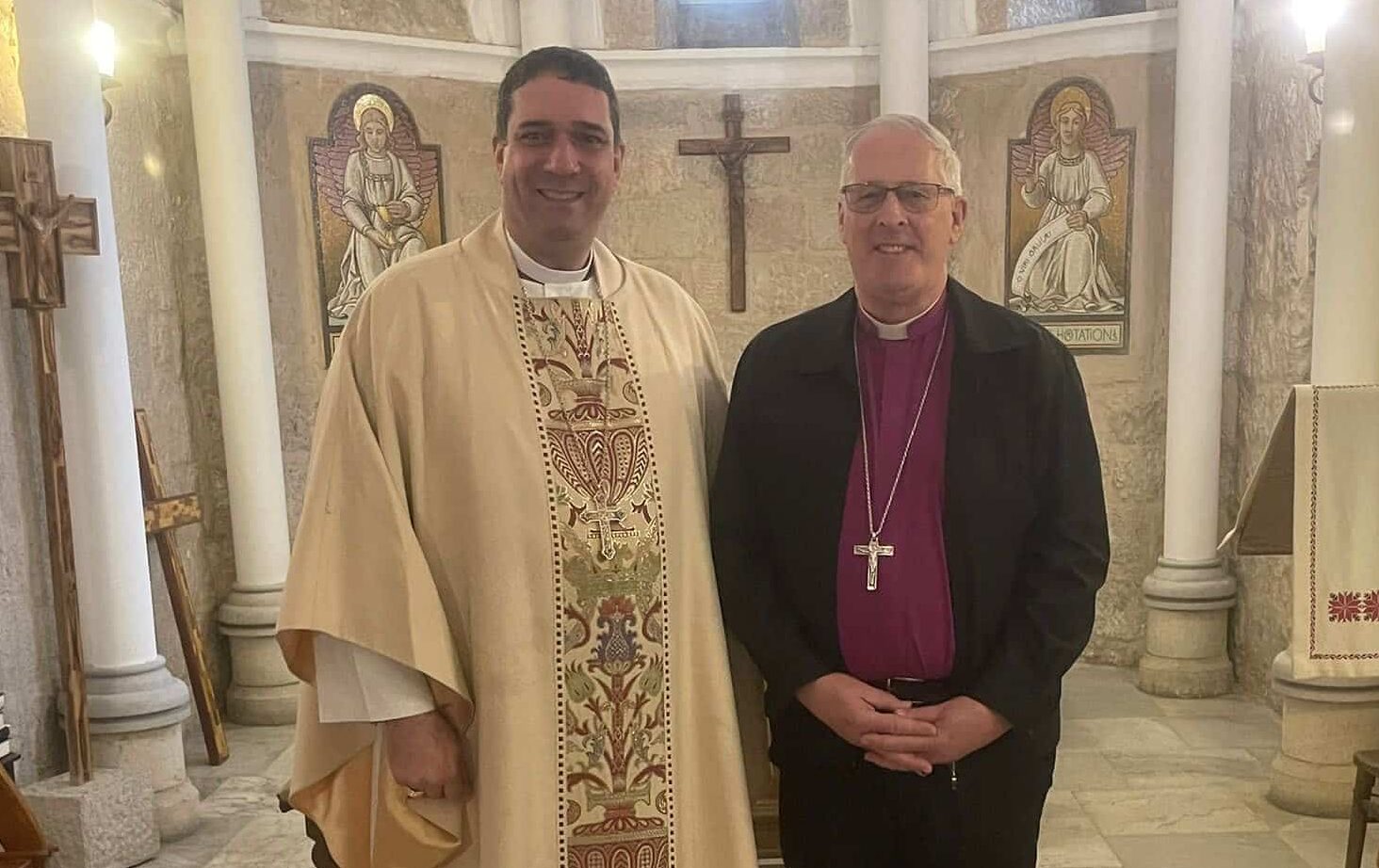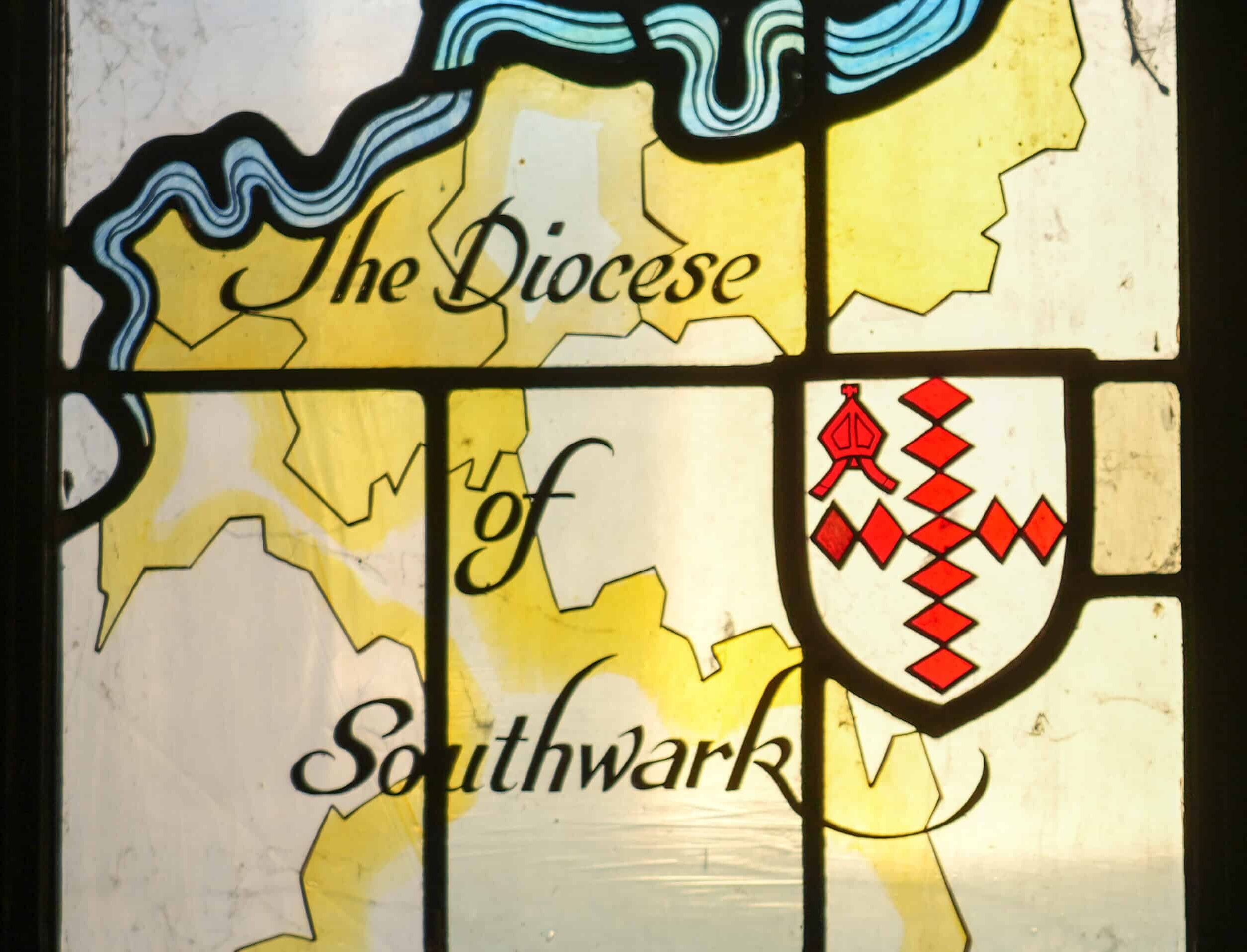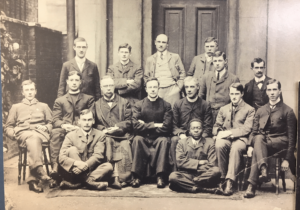
De Jean Sigismund McEwen at St Stephen’s House in 1904
The Rio Pongas Mission was an influential Christian mission established in the mid-19th century in West Africa and staffed primarily by West Indian missionaries, many of whom were graduates of Codrington College in Barbados. Information and documents associated with the mission offer insights into British colonialism in West Africa at the time, the slave trade, and the conversion of people to Christianity in the region.
Key people:
- Archdeacon John Baptiste McEwen (? – 1901) – his son was:
- De Jean Sigismund McEwen (1883 – 1953) – his son was:
- Dejean Baptiste McEwen (1922-2005) – his son was:
- Marcel McEwen (1957 – ) married to: Yvonne McEwen (1956 – )
- Marcel has 3 siblings: Dejean McEwen (1950 – ), Desiree (1955 – ), and Lettie-ann (1953 – )
- Imani McEwen – (1996 – )
- Imani has a sibling, Namdi McEwen (1990 – )
Key dates:
- 1850: The West Indian Mission to West Africa is established.
- 1871: Archdeacon John Baptiste McEwen joins the Mission.
- 1873: Missionaries appeal for funds to establish boarding schools for training local clergy.
- 1880: McEwen witnesses the manumission document of an enslaved woman.
- 1899: McEwen establishes a new mission station in Conakry, French Guinea.
- 1900: All Saints Church in Conakry is opened.
- 1901: McEwen dies after serving the Mission for over 30 years.
- 1904: De Jean Sigismund McEwen, son of John Baptiste McEwen, graduates from St Stephen’s House, Oxford
- 1904 De Jean Sigismund McEwen joins the Mission.
- 1929: The now-Canon McEwen takes charge of the Conakry station.
- 1943: McEwen becomes the second Archdeacon of the Pongas region.
- 1941: Colonial authorities in Conakry accuse the Mission of espionage and arrest the missionaries.

Canon De Jean Sigismund McEwen’s entry into the 1930 edition of Crockford’s Clerical Dictionary
Archdeacon John Baptiste McEwen, my great, great grandfather, was an African-descended West Indian from Grenada. He joined the Rio Pongas Mission in December 1871 and was a graduate of Codrington College, Barbados, as well as holding a Durham University Bachelor of Arts degree in Theology. Ordained deacon in Barbados in 1869, he was stationed at St. Vincent, and later in Trinidad, as a licensed reader.
McEwen’s arrival at the Mission marked a significant turning point in its history. His education and experience made him a valuable asset to the team, and he quickly became a respected leader among the missionaries.
The influence of those involved extended beyond religious matters. In 1880, for example, both Philip Henry Douglin and John Baptiste McEwen witnessed the manumission document of John Ormond’s slave, Eliza Thomas, highlighting the Mission’s commitment to social justice and the abolition of slavery.
There were numerous challenges faced along the way. One of the most significant hurdles was the lack of boarding schools for training local clergy. In 1873, the missionaries, including McEwen, appealed directly to supporters in Barbados and England for funds to establish such schools. They argued that boarding schools were essential to train future schoolmasters, catechists, and even ministers for the nascent African Church. A boy’s boarding school was founded on the Island of Kassa, Iles de Los.
In 1899, Archdeacon McEwen, by then a senior missionary with over 27 years’ service, made a strategic decision crucial to the Mission’s survival, proposing the opening of a new base in Conakry in French Guinea, situated opposite the Iles de Los.
The funds available for the Mission from West Indian sources had greatly diminished, and it seemed that the Mission’s days on the Iles de Los were numbered. McEwen had tried to appeal to a Committee to fund the mission’s move to Conakry, but they had turned a deaf ear. McEwen settled in Conakry himself in January 1899 and, demonstrating remarkable initiative, made a vigorous attempt to raise the necessary sum for a new church. The traders and settlers in this rapidly increasing centre readily responded, and he raised £300 (about the equivalent today of £32,000) locally to build a solid stone house there.
This marked the beginning of a new chapter for the Mission, replacing Fotoba as its headquarters. The laying of the foundation stone for a church in Conakry took place on April 4th 1899, and All Saints Church was officially opened on January 4th 1900.
Sadly, McEwen was not to see much of its future as he tragically passed away due to Malaria on 7th June 1901 having dedicated over thirty years of his life to the Mission.
The Legacy Continues
Despite McEwen’s untimely death, his legacy lives on. All Saints Church flourished, becoming a spiritual home for hundreds of people, including Europeans, Mendes, Susus, and Sierra Leoneans.
Furthermore, John Baptiste McEwen’s legacy extended beyond his own involvement. His son, De Jean Sigismund McEwen, also served as a missionary in the Rio Pongas region from 1904, following in his father’s footsteps. One of the first black students to attend St Stephen’s House, Oxford, De Jean Sigismund obtained a BA (Oxford) and was ordained in 1904 aged 21 or 22. He had previously studied at St Boniface College, Warminster (formerly St Boniface Missionary College).
He rose through the ranks of the Mission, eventually becoming the second Archdeacon of the Pongas region. His dedication and leadership were instrumental in ensuring the Mission’s continued success.
The work of the Rio Pongas Mission continued, but not without adversity. Notably in 1941, colonial authorities in Conakry falsely accused the Mission of espionage, a stark reminder of the adversity they faced.
The Mission was perhaps most influential in the area of education as a number of key local personnel were trained at the boarding school at the Isles de Los that Revd Farquhar became the Principal of. Many boarding school pupils later became leaders of key educational institutions in Guinea.
The Rio Pongas Mission was key to the advancement of Christianity within Africa through the contribution of the schools that it established and their impact on nation-building. It remained part of the diocese of Sierra Leone until 1935 when political tensions with France led to the Mission being linked with the Diocese of Gambia and Guinea under John Daly.
At some point in the 1920s, Revd De Jean Sigismund McEwen was appointed an Honorary Canon in St. George’s Cathedral, Sierra Leone.
The Rio Pongas Mission’s story is a testament to the enduring power of faith, dedication, and service. Despite facing numerous challenges, the Mission’s legacy lives on, inspiring generations to come to have a deep-rooted faith that can withstand the challenges of life.”
A Personal Touch: McEwen’s Oxford Gown
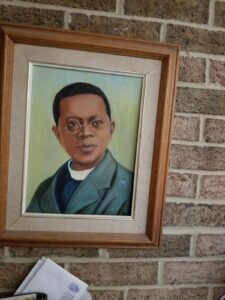
Canon De Jean Sigismund McEwen
“De Jean Sigismund McEwen’s son, Dejean Baptiste McEwen, migrated to Freetown Sierra Leone and used to keep his father’s Oxford gown and degree in a locked chest, often dusting them. This treasured possession symbolised his father’s achievements and the educational opportunities he had been afforded at St Stephen’s House, Oxford. When Revd Dejean died, he was laid out in his Oxford Gown for people to view the body, before it was removed for his burial.
Unfortunately, during the civil war in Sierra Leone during the 1990s, McEwen’s prized possessions were destroyed as rebels descended on the capital city of Freetown, looting, destroying or burning the contents of houses and leaving a tangible reminder of the turmoil and loss experienced by many during that time.
Dejean Baptiste McEwen, born in Fotoba, Guinea moved to Sierra Leone and had four children: Lettie remained in Freetown, Desiree emigrated to America and Dejean and Marcel emigrated to England.
Dejean’s granddaughter is the author of this piece, Imani McEwen. Imani read Modern and Medieval Languages, Spanish and French at Clare College, Cambridge and now works for the Diocese of Southwark as Children and Youth Mission Support Officer, continuing the family tradition that began over 150 years ago.”
The original St STephen’s House newsletter article can be found here St Stephen’s House News 24/25 Issue 10 https://issuu.com/ssho-ox/docs/ssh-newsletter-issue-10-singlepages




